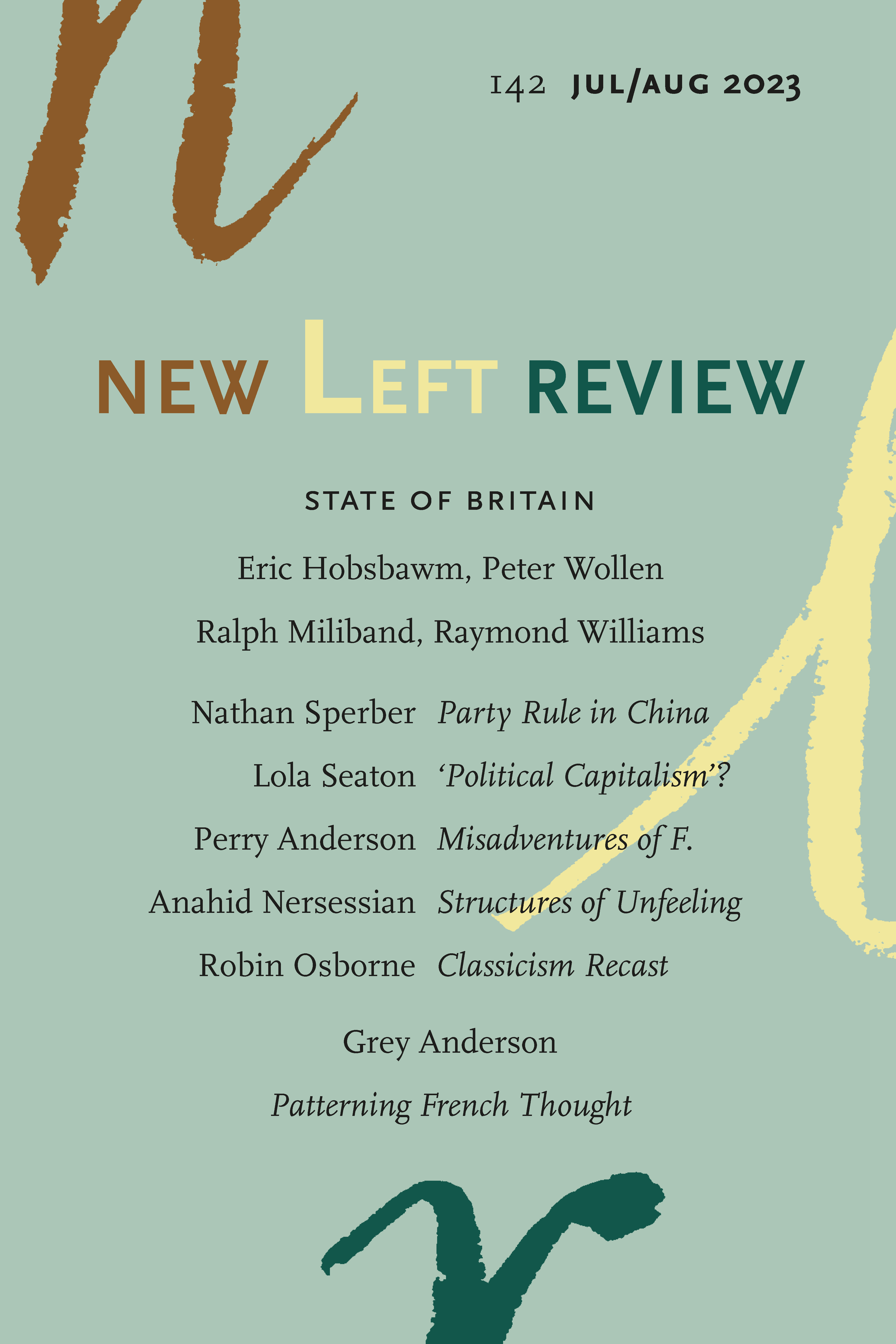In a probing response to Dylan Riley and Robert Brenner’s ‘Seven Theses on American Politics’, Lola Seaton interrogates the claim that a novel regime of accumulation has emerged from the long downturn and unravels the conjunctural complexities—political, economic, environmental, geo-political—at stake in the debate that has ensued.
Unlocking the conceptual monolith of the ‘party-state’, Nathan Sperber sets the evolving relationship between the CCP and the vast governmental apparatus through which it rules in comparative historical context—revealing novel features of the Xi Jinping era.
An aetiology of flatness, traced through close readings of three radical American poets. In tension with the expressive subjectivity of lyric and the forceful register of political commitment, resonances of the muted, withdrawn or deadpan affect of this poetry with a broader cultural mode, as the sound of the historical present.
Introducing the four pieces that follow, by Peter Wollen, Raymond Williams, Eric Hobsbawm and Ralph Miliband, commissioned by the Italian communist Giorgio Fanti for a special issue of Il contemporaneo on the state of Britain. Retranslated by NLR, they are published here for the first time in English.
In the first of four New Left texts from 1963, published for the first time in English, Peter Wollen assesses the films of Karel Reisz, Lindsay Anderson, Tony Richardson, Joseph Losey—and surveys prospects for a seventh art capable of transcending literary antecedents, in the context of a stultifying national industry
Anatomization of the fifties and sixties generations of British novelists—Amis, Wain, Golding, Murdoch, Lessing—and playwrights: Osborne, Wesker, Delaney, Pinter, with new forms emerging from the conservatism of the early Cold War years across the crux of 1956.
How far did Britain’s class structure alter in the sixties, with the onset of the ‘affluent society’? As counterpoint to prevalent myths and pieties, Hobsbawm supplies a mordant panorama of shifting habits and customs against a backdrop of polarized class and cultural divergence.
Prognosis of the incoming Wilson administration. With Conservative defeat all but assured, a prescient assessment of the likelihood of a structural economic shift or foreign policy reconfiguration. The party’s historical tendencies and present balance of forces—what hope that it could answer the desire for change in the country at large?
Portrait of the organizer of the 1963 issue of Il Contemporaneo on Britain, by way of his memoir, I distintivi all’occhiello. From the Resistance to the PCI to journalistic postings in Italy and beyond, a work marrying sentimental history and political retrospect, revealing a radical and independent-minded figure.
Robin Osborne on Pierre Vesperini, Lucrèce and La philosophie antique. An iconoclastic dismantling of the myth of classical Greek philosophy as precursor to its modern forms
Grey Anderson on Jacob Collins, The Anthropological Turn. Trajectories of four theorists—de Benoist, Gauchet, Todd, Debray—whose metapolitical writings mark a volta in French social thought.
